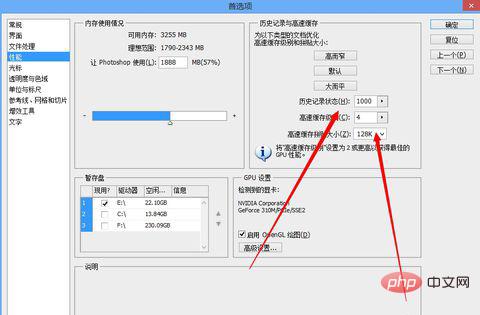Home >Web Front-end >PS Tutorial >By default, the number of retained historical states set by ps is
By default, the number of retained historical states set by ps is
- (*-*)浩Original
- 2019-07-30 15:45:556537browse
Adobe Photoshop, referred to as "PS", is an image processing software developed and distributed by Adobe Systems.

Photoshop mainly processes digital images composed of pixels. Use its numerous editing and drawing tools to effectively edit pictures. PS has many functions, covering images, graphics, text, videos, publishing and other aspects. (Recommended learning: PS video tutorial)
In 2003, Adobe Photoshop 8 was renamed Adobe Photoshop CS. In July 2013, Adobe launched a new version of Photoshop CC. Since then, Photoshop CS6 has been replaced by the new CC series as the last version of the Adobe CS series.
As of January 2019, Adobe Photoshop CC 2019 is the latest version on the market.
Adobe supports Windows operating system, Android and Mac OS, but Linux operating system users can run Photoshop by using Wine.
This software can be divided into image editing, image synthesis, color correction and functional color effect production parts. Image editing is the basis of image processing. It can perform various transformations on images, such as enlarging, reducing, rotating, tilting, mirroring, perspective, etc.; it can also copy, remove spots, repair, and modify image damage, etc.
ps By default, the number of historical states retained is 20 times. Because the initial value is 20, it can be modified at will, up to a maximum of 1,000.

For more PS related technical articles, please visit the PS Tutorial column to learn!
The above is the detailed content of By default, the number of retained historical states set by ps is. For more information, please follow other related articles on the PHP Chinese website!

